The poetics of Wicked
& the dialect of Oz
Let us rejoicify that goodness could subdue
the wicked workings of you-know-who
Such are the words of Glinda the Good Witch in the opening number of Wicked, one of the highest-grossing Broadway shows of all time.
And this weekend, it snagged a new record: best opening weekend of a broadway film adaptation. $163M. So long, Les Miserables.
So to honor my childhood fandom, I plan to spend the next few months staring wistfully out car windows while playing this soundtrack on my portable CD player. And, as you’ll come to see, dissecting the poetics of the writing.
Pause—a little context
For the non-theatre kids, Wicked is a musical based on a book, based on a book.
The original book is The Wizard of Oz. That inspired Gregory Maguire’s Wicked: The Life and Times of the Wicked Witch of the West, a prequel that subverts a lot of the things we take to be true about The Wizard of Oz—is the wicked witch really wicked? Is Glinda the Good really good? And what do those words mean anyway?
We come to see that the Wicked Witch of the West (whose real name is Elphaba) is really just the product of bad PR. She was born green, an otherness that made her quite unpopular, then got pinned for someone else’s shortcomings.
What I love is that the story doesn’t do a complete inversion. Glinda the Good Witch, for example, isn’t suddenly wicked; she’s just… complicated. Like all of us.
And to further complicate her, Wicked reveals that she and Elphaba (the “wicked” witch) were actually friends.
Telling the truth
Stephen Schwartz, composer & lyricist of both the musical and film, said of his creative process: "Tell the truth, and make it rhyme."
And making it rhyme is often a part of telling the truth. The poetics aren’t just accessories; they communicate additional layers of meaning.
So with that, a breakdown of my two favorite poetic choices in Wicked.
“Word”-building
Listen closely, and you’ll discover that Oz has its own dialect. The script uses neologisms—or newly invented words—to add whimsy to the world. But the words aren’t random; in fact, they’re carefully constructed from scene one.
In Munchkinland, a Munchkin asks Glinda the Good Witch why wickedness happens, and she replies: “That’s a good question. One that many people find confusifying.”
It’s almost proper English, but there’s an unnecessary suffix added: “-ify.” This suffix usually indicates something being made or transformed. Think “glorify”: to make something glorious, or “clarify”: to make something clear. All of these require a maker, a shaper, a manipulator. Someone doing the crafting.
Glinda adds many an unnecessary suffix over the course of the story, describing her Granny’s hat as “hideoteous,” the Ozdust Ballroom as “scandaloscious,” and her love interest as “moodified.”
But this isn’t just a Glinda idiolect. Everyone seems to speak that way. When Glinda is randomly assigned to be Elphaba’s roommate, the students sing in unison, “Poor Galinda, forced to reside with someone so disgusticified.”
Scene for reference ft. killer choreo, Ariana’s jaw-dropping riff and some slightly inaccurate lyrics (sorry):
 Tiktok failed to load.
Tiktok failed to load.Enable 3rd party cookies or use another browser
At some point, this linguistic quirk seems to get a name. The head mistress of the university shares her high hopes for the students, “whether you are here to study Law, Logic, or Linguification.”
It becomes clear “linguification” isn’t just teen slang but a function of Oz’s culture at large. Words, as a rule, are needlessly dressed up.
But the one character who never uses the language? Elphaba, the “wicked” witch.
She doesn’t conform, and in the context of this “witch trial,” that makes her enemy number one.
Origins of Oz talk
This Ozian dialect was not in the original book as far as I can tell. It seems to be the work of Winnie Holzman, who wrote the book for the musical (and whom you also might know as Cheryl’s therapist in Curb Your Enthusiasm).
I love this decision. Any time the language shows up, it’s a marker of conformity. This later gives way to a more sinister group-think as Ozians start sorting “good” and “wicked” into binaries. But the language was there from the beginning.
Galinda to Glinda
Glinda actually makes an (albeit small) step away from the dialect when she changes her name from “Galinda” to the simpler “Glinda.”
Of course, she does it in the most performative way, citing a reason that drips of virtue signaling. But still, it’s a small act of defiance.
“Galinda” had been her brand. She had previously insisted Elphaba call her that instead of a nickname. And she had gotten needlessly upset when her professor couldn’t pronounce it. It was everything to her.
And rightly so. Names, as it turns out, are highly important in Oz. In act two (which will be its own separate movie coming in 2025), the wizard sings:
Is one a crusader or a ruthless invader?
It’s all in which label is able to persist.
There are precious few at ease
with moral ambiguities
so we act as though they don’t exist.
They call me “wonderful.”
So I am wonderful.
In fact, it’s so much who I am,
it’s part of my name.
And it’s true—there’s the “Wonderful Wizard.” “Glinda the Good.” “The Wicked Witch of the West.” They’re all given these simplistic epithets so the Ozians don’t have to grapple with moral ambiguities; the answer is in the name.
And when the wizard is at risk of being discovered to be not so “wonderful” after all, he gives Elphaba the label “wicked” to silence her. The scary thing? It works. No one asks what she’s done that’s wicked; they simply adopt the epithet.
The popularity contest
Your name, your flowery Ozian language—it all adds to your popularity. Glinda says as much in the song “Popular” when she tells Elphaba that she’ll teach her “the slang you've got to know.” She tells her:
It’s not about aptitude.
It’s the way you’re viewed.
So it’s very shrewd to be
very, very popular like me.
For Glinda, popularity is not just an aspiration; it’s a “shrewd” move, a survival strategy in a land where people make snap judgments and don’t think for themselves. After all, once you’re given an epithet, it’s with you forever.
This makes Elphaba’s statement all the more powerful when she tells Glinda, toward the end, “Promise me you won’t try to clear my name.”
The poetics of Oz
These are small details, ultimately—the epithets, the neologisms. But in Oz, words aren’t small. Even the magic itself comes from recitation of spells. In other words, words. Words become action.
And this is the genius of Wicked—how it uses these details to show labels at work. How it forces us to challenge our own definitions. To discard the frivolous. To see gray (or green?) in a world of black and white.
I, for one, think that’s quite astoundifying.
🐱
Emma



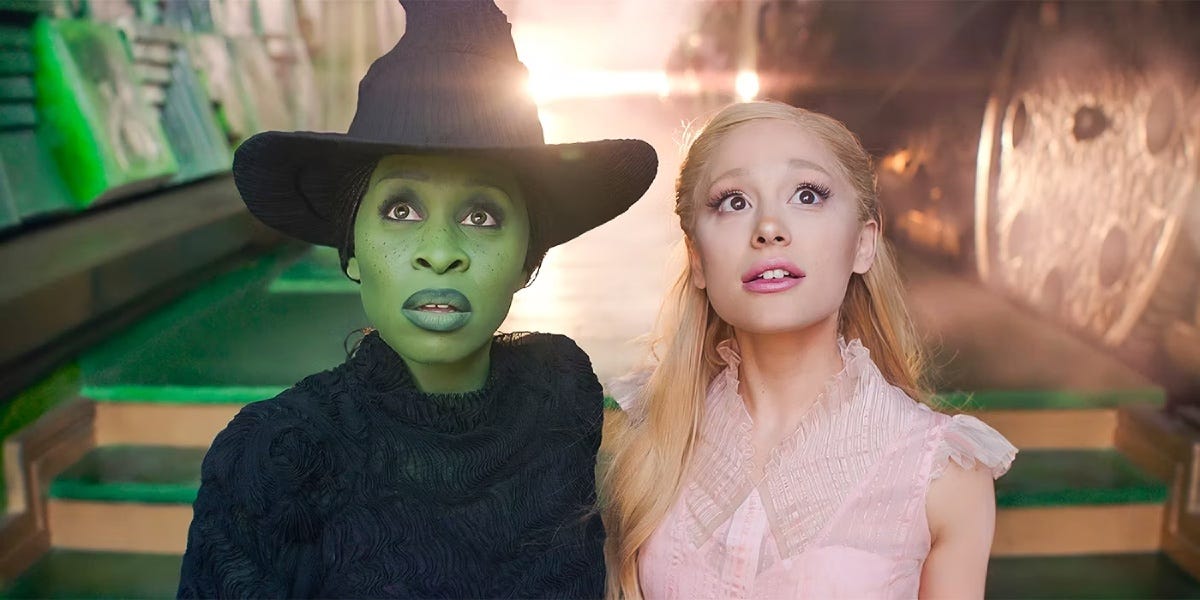
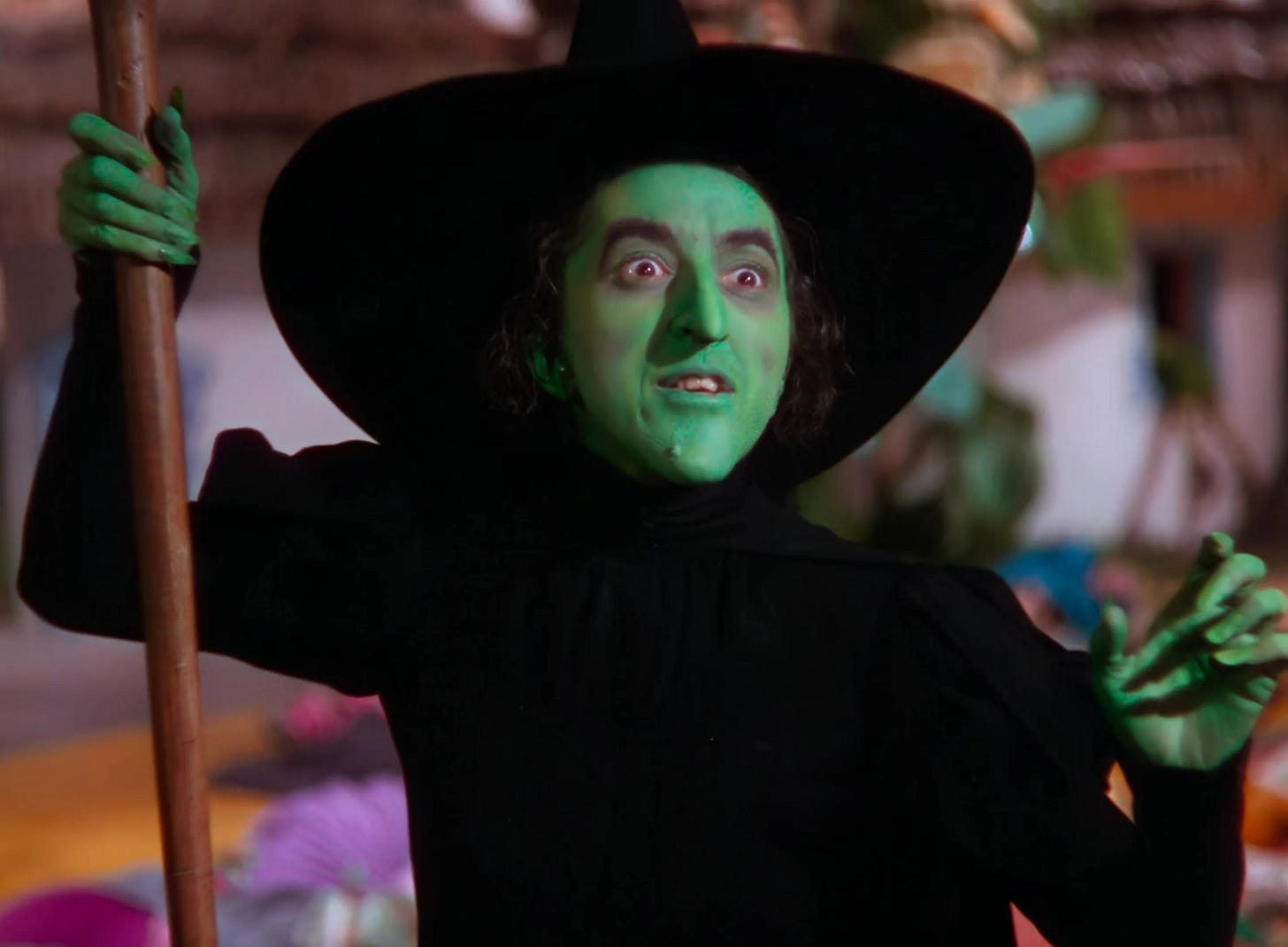
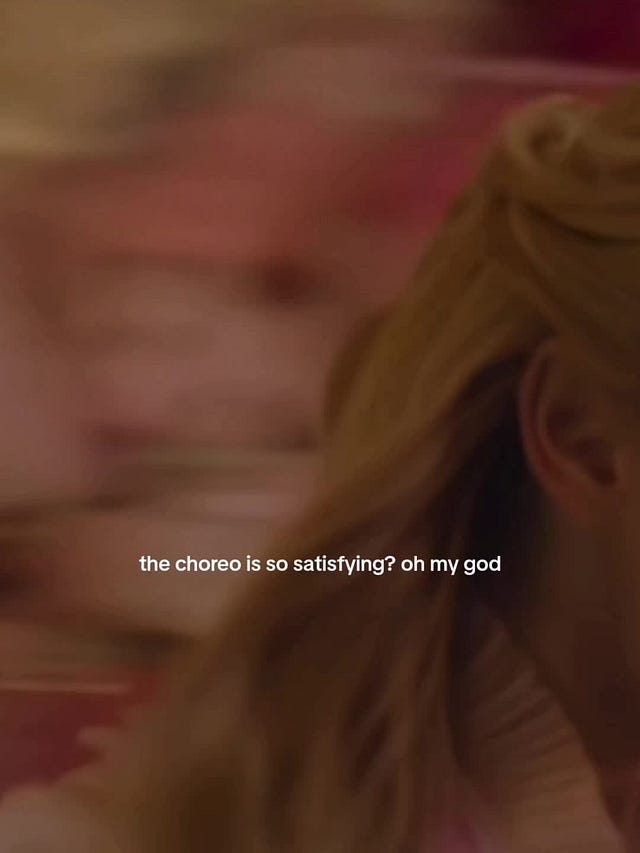
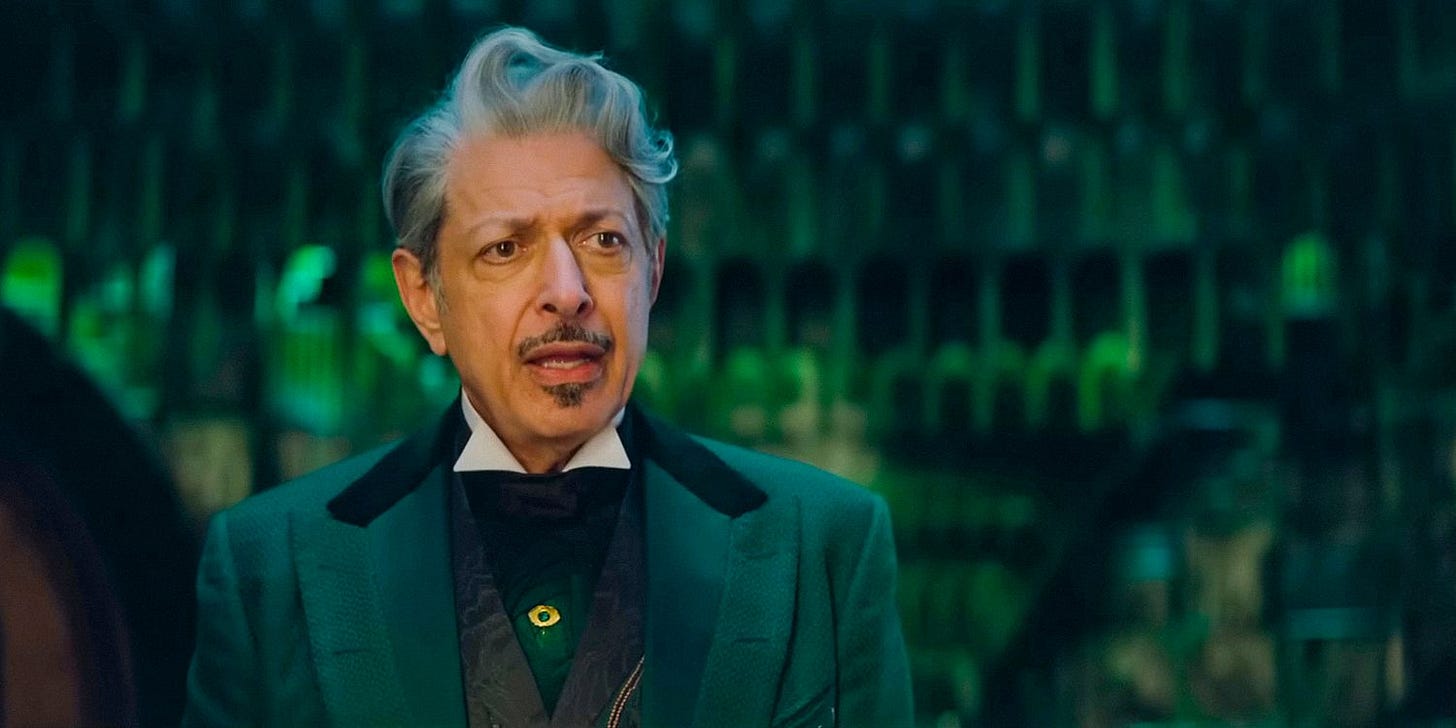
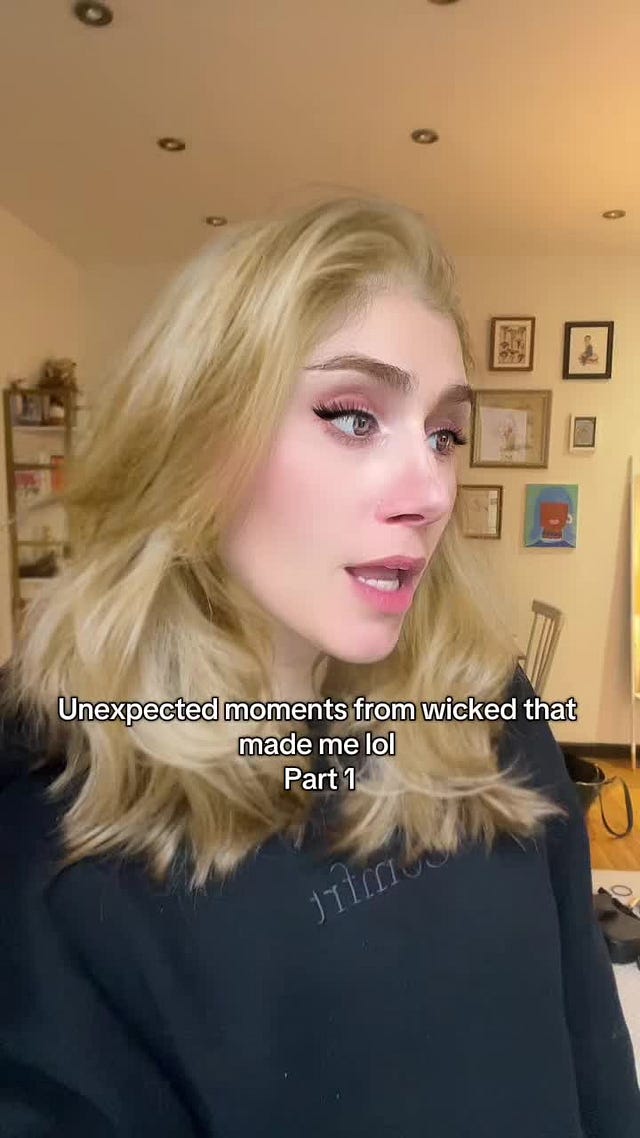
I can’t wait to watch it!! I remember seeing Judy Garland’s Wizard of Oz when I was small and being deathly afraid. I need to see ambiguity of the characters!
Lovely text too✨
impressificacious post. Fun fact: Gregory Maguire goes to the same parish church as I do in Albany, New York.